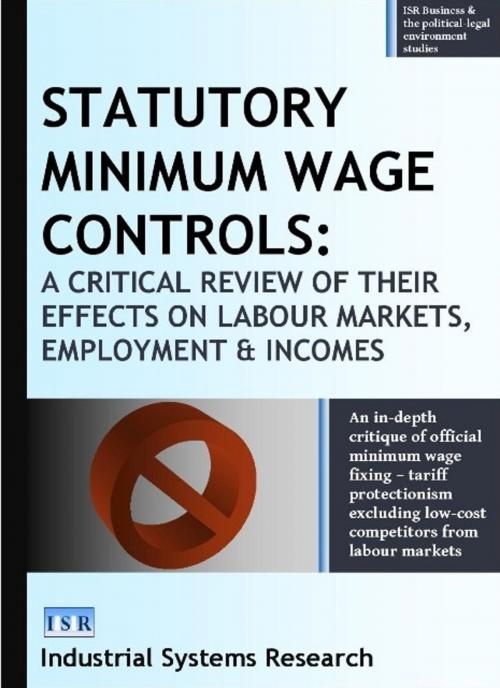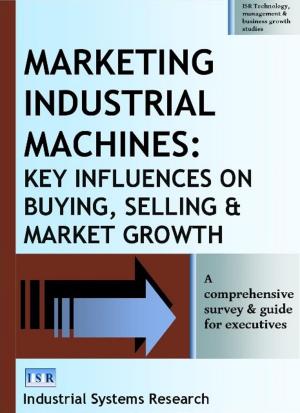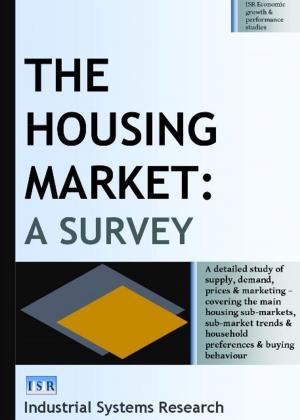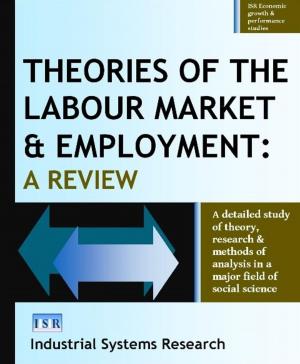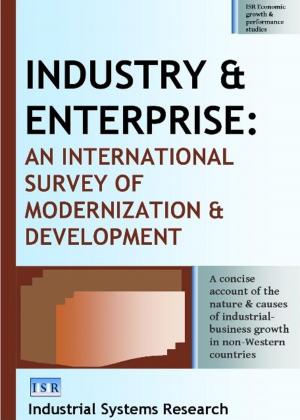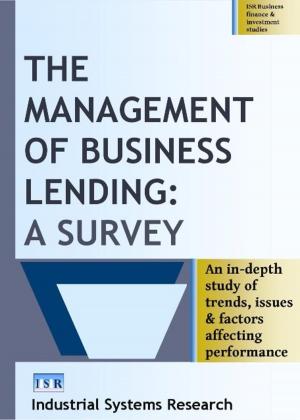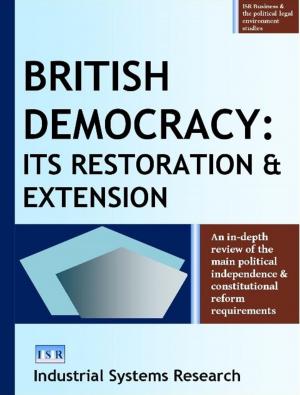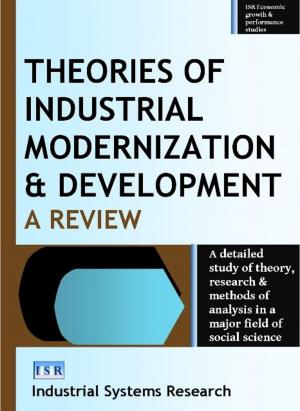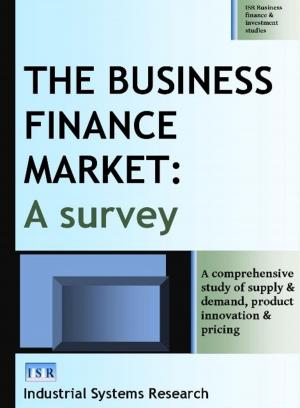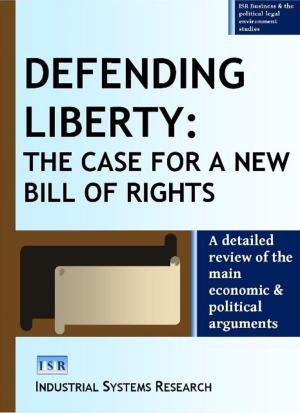Statutory Minimum Wage Controls
A Critical Review of their Effects on Labour Markets, Employment and Incomes
Business & Finance, Economics, Free Enterprise, Nonfiction, Social & Cultural Studies, Political Science, Politics, Labour & Industrial Relations, Economic Conditions| Author: | Lewis F Abbott | ISBN: | 9780906321669 |
| Publisher: | Industrial Systems Research | Publication: | September 7, 2013 |
| Imprint: | Language: | English |
| Author: | Lewis F Abbott |
| ISBN: | 9780906321669 |
| Publisher: | Industrial Systems Research |
| Publication: | September 7, 2013 |
| Imprint: | |
| Language: | English |
Statutory Minimum Wage Controls: A Critical Review of their Effects on Labour Markets, Employment and Incomes
"The patrimony of a poor man lies in the strength and dexterity of his hands; and to hinder him from employing this is a plain violation of this most sacred property.” (Adam Smith, The Wealth of Nations, 1776)
Around the world, minimum wage controls exclude low cost competitors from labour markets, hamper firms in reducing wage costs during trade downturns, and cause unemployment, price increases and poverty.
In the European Union, national minimum wage barriers to labour market entry and employment make a mockery of the Treaty of Rome guarantee of free trade and markets in labour services. In Britain, the National Minimum Wage has caused large-scale youth unemployment, transfer of manufacturing and service jobs abroad, short-term contract and casual working, and the closure of small shops, restaurants, pubs and marginally profitable businesses generally.
This study analyzes national minimum wage fixing as a special form of political-economic protectionism – the dysfunctional equivalent or analogue of such things as tariff barriers to low cost goods imports.
Coverage:
1. Minimum wage controls and their effects
Economic and political motives for minimum wage control* the general case against* unemployment effects* minimum wage-fixing as a form of protectionism and discrimination* minimum wage, maximum wage (“incomes policy”), and other forms of price control* negative income and welfare effects*
2. Minimum wage controls in particular countries
Comparative wage and labour market freedom in Britain* trade union attitudes towards state wage-fixing* minimum wage controls and their effects in the us and Europe* defining "pay" and other technical-administrative issues*
3. Legal aspects of minimum wage control
Legal, constitutional and rights issues* avoidance and evasion* challenging official wage-fixing and job losses in the courts*
4. Minimum wage control and unemployment
How minimum wages cause unemployment* international studies* recent research findings and forecasts*
5. Effects on employers and labour demand
Economics of labour demand* firms and industries most affected by statutory wage controls* employers' responses – from job redundancies and out-sourcing to changes in working practices, hours, and payment methods*
6. Effects on employees and labour supply
Economics of labour supply* employees most affected by wage control: occupational, skill, age, race, sex, and regional variables*
7. The effects on incomes and welfare
The case against using wage controls for income redistribution purposes* employment subsidies, tax cuts, and welfare payments as an alternative* productivity, supply and demand and other real industrial-economic causes of wage differentials* summary and conclusions*
Statutory Minimum Wage Controls: A Critical Review of their Effects on Labour Markets, Employment and Incomes
"The patrimony of a poor man lies in the strength and dexterity of his hands; and to hinder him from employing this is a plain violation of this most sacred property.” (Adam Smith, The Wealth of Nations, 1776)
Around the world, minimum wage controls exclude low cost competitors from labour markets, hamper firms in reducing wage costs during trade downturns, and cause unemployment, price increases and poverty.
In the European Union, national minimum wage barriers to labour market entry and employment make a mockery of the Treaty of Rome guarantee of free trade and markets in labour services. In Britain, the National Minimum Wage has caused large-scale youth unemployment, transfer of manufacturing and service jobs abroad, short-term contract and casual working, and the closure of small shops, restaurants, pubs and marginally profitable businesses generally.
This study analyzes national minimum wage fixing as a special form of political-economic protectionism – the dysfunctional equivalent or analogue of such things as tariff barriers to low cost goods imports.
Coverage:
1. Minimum wage controls and their effects
Economic and political motives for minimum wage control* the general case against* unemployment effects* minimum wage-fixing as a form of protectionism and discrimination* minimum wage, maximum wage (“incomes policy”), and other forms of price control* negative income and welfare effects*
2. Minimum wage controls in particular countries
Comparative wage and labour market freedom in Britain* trade union attitudes towards state wage-fixing* minimum wage controls and their effects in the us and Europe* defining "pay" and other technical-administrative issues*
3. Legal aspects of minimum wage control
Legal, constitutional and rights issues* avoidance and evasion* challenging official wage-fixing and job losses in the courts*
4. Minimum wage control and unemployment
How minimum wages cause unemployment* international studies* recent research findings and forecasts*
5. Effects on employers and labour demand
Economics of labour demand* firms and industries most affected by statutory wage controls* employers' responses – from job redundancies and out-sourcing to changes in working practices, hours, and payment methods*
6. Effects on employees and labour supply
Economics of labour supply* employees most affected by wage control: occupational, skill, age, race, sex, and regional variables*
7. The effects on incomes and welfare
The case against using wage controls for income redistribution purposes* employment subsidies, tax cuts, and welfare payments as an alternative* productivity, supply and demand and other real industrial-economic causes of wage differentials* summary and conclusions*
